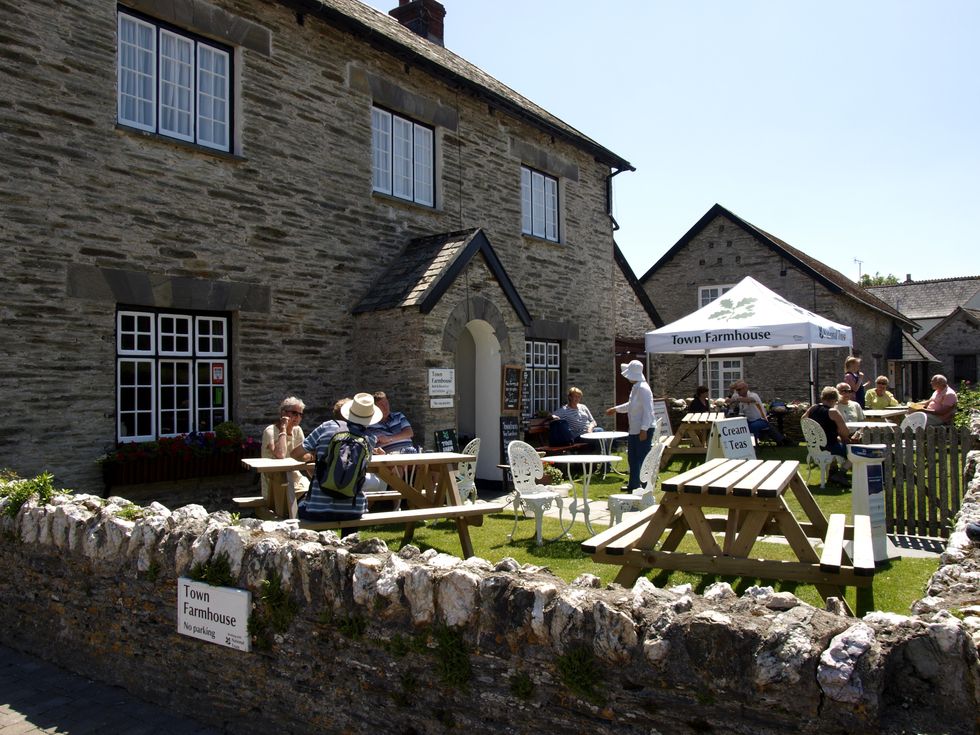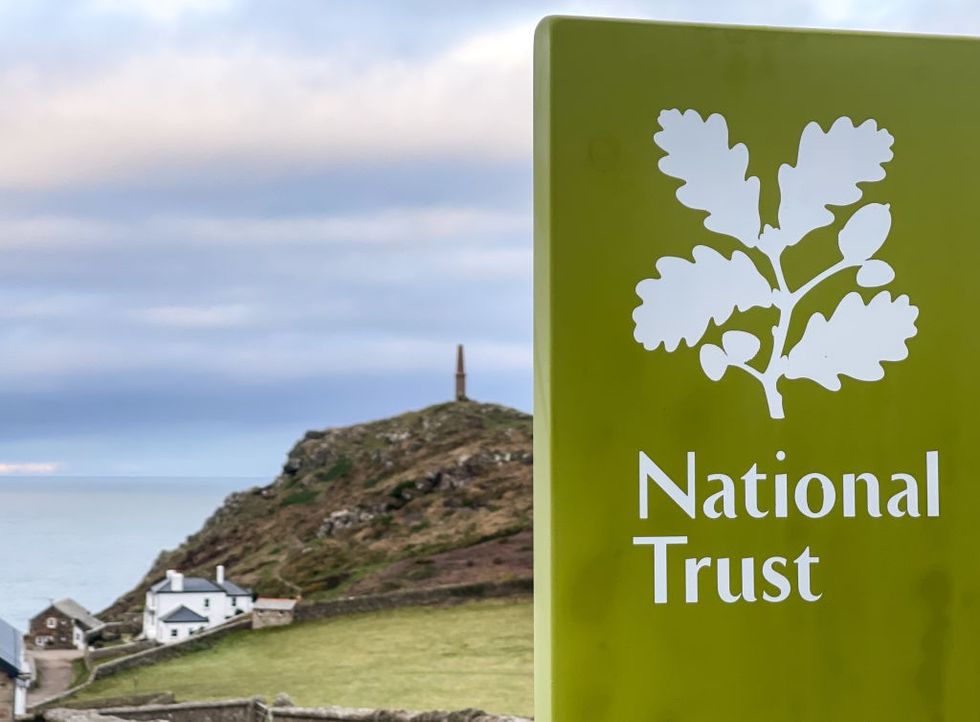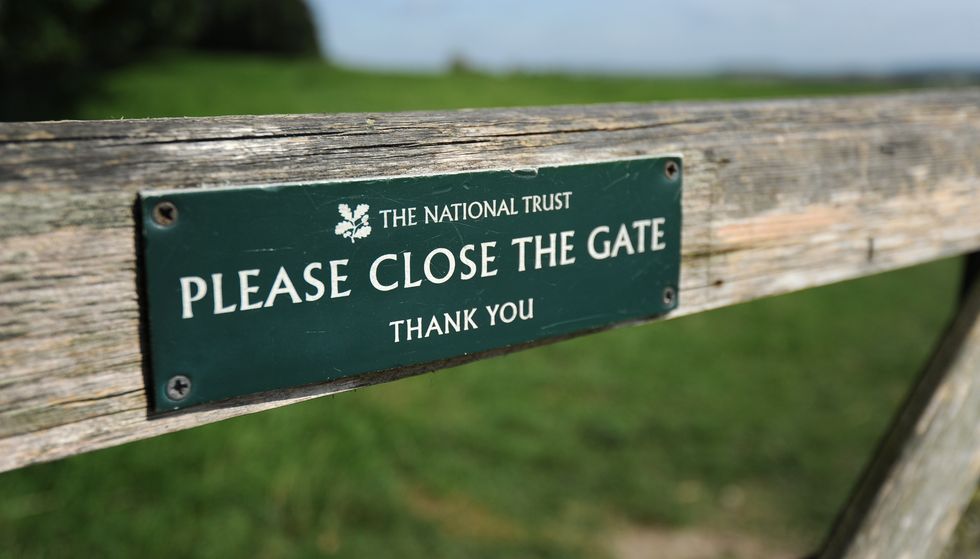Holly Bishop
Guest Reporter
The National Trust has voted to make half of all produce at its 300 cafes and food outlets plant-based, despite facing backlash from some members.
The decision, aimed at supporting the organisation's efforts to reach net zero and improve biodiversity and health, was passed with 57,490 members voting in favour and 20,111 against.

The move has sparked a heated debate within the trust, with supporters hailing it as a vital step in tackling climate change, while critics accuse the leadership of pushing an anti-meat agenda.
The vote took place during the National Trust's Annual General Meeting at Newcastle Civic Centre on Saturday.

The vote revealed a stark divide among members.
One critic argued: "This motion forces us to eat food that is not of our choice. Instead we should be supporting the National Trust's livestock tenant farmers."
However, a young volunteer countered: "Charities like the National Trust need to lead the way in protecting nature, and tackling the climate crisis. This is a common sense vote in favour."
The trust's board of trustees defended the decision, stating: "We already have numerous plant-based options, and will keep dairy, egg and meat on the menu as well."
MORE LIKE THIS:
"We’ll continue working closely with livestock farmers and encourage grazing practices that benefit nature and the climate.
“We know from research we’ve carried out that a range of vegan/vegetarian options is a consideration for families and younger people in particular. Serving a wider range of plant-based options can help us appeal to more potential visitors, which will ultimately generate funds towards looking after the places and collections in our care.”
In addition to the vegan produce resolution, members also backed a proposal to strengthen the trust's response to the climate emergency and support the proposed Climate and Nature Bill.
The AGM also saw members raising concerns about other issues within the National Trust.
Some questioned the attitudes and patriotism of staff and volunteers towards British history, following comments by director general Hilary McGrady about the progressive nature of trust employees.
Members also expressed frustration over bureaucratic hurdles for prospective volunteers.

These discussions followed recent controversies, including the trust's use of explainer panels highlighting slave-owning histories at its properties, the introduction of vegan scones, and decisions regarding property restoration.
Additionally, there was criticism of the trust's 'quick vote' system, which some argue stifles debate.
The system allows members of the trust to back its governing council by agreeing with one keystroke to its recommendation on issues and candidates, something Zewditu Gebreyohanes, the former director of the campaign group Restore Trust, said was “undemocratic”.
The trust defended the use of the quick vote, pointing out it had been approved by the Charity Commission and that members had already backed its use at last year’s AGM.
The trust defended the system, and Jan Lasik, the trust’s general counsel and secretary, told the AGM: “Members can use the quick vote or they can choose not to.”
Despite these concerns, the trust defended its practices and staff, with McGrady stating, "We've got the best people possible to do this job. We have the most passionate staff who want to care for the history of our places.”
Find Out More...
The decision, aimed at supporting the organisation's efforts to reach net zero and improve biodiversity and health, was passed with 57,490 members voting in favour and 20,111 against.

The move has sparked a heated debate within the trust, with supporters hailing it as a vital step in tackling climate change, while critics accuse the leadership of pushing an anti-meat agenda.
The vote took place during the National Trust's Annual General Meeting at Newcastle Civic Centre on Saturday.

The vote revealed a stark divide among members.
One critic argued: "This motion forces us to eat food that is not of our choice. Instead we should be supporting the National Trust's livestock tenant farmers."
However, a young volunteer countered: "Charities like the National Trust need to lead the way in protecting nature, and tackling the climate crisis. This is a common sense vote in favour."
The trust's board of trustees defended the decision, stating: "We already have numerous plant-based options, and will keep dairy, egg and meat on the menu as well."
MORE LIKE THIS:
- National Trust members furious after being BLOCKED from holding vote aimed at stopping charity imposing woke policies without scrutiny
- 'We like the noise!' Fireworks director hits back at call for loud pyrotechnics to be BANNED
- Halloween goes woke as dentists urge parents to give children STICKERS instead of sweets
"We’ll continue working closely with livestock farmers and encourage grazing practices that benefit nature and the climate.
“We know from research we’ve carried out that a range of vegan/vegetarian options is a consideration for families and younger people in particular. Serving a wider range of plant-based options can help us appeal to more potential visitors, which will ultimately generate funds towards looking after the places and collections in our care.”
In addition to the vegan produce resolution, members also backed a proposal to strengthen the trust's response to the climate emergency and support the proposed Climate and Nature Bill.
The AGM also saw members raising concerns about other issues within the National Trust.
Some questioned the attitudes and patriotism of staff and volunteers towards British history, following comments by director general Hilary McGrady about the progressive nature of trust employees.
Members also expressed frustration over bureaucratic hurdles for prospective volunteers.

These discussions followed recent controversies, including the trust's use of explainer panels highlighting slave-owning histories at its properties, the introduction of vegan scones, and decisions regarding property restoration.
Additionally, there was criticism of the trust's 'quick vote' system, which some argue stifles debate.
The system allows members of the trust to back its governing council by agreeing with one keystroke to its recommendation on issues and candidates, something Zewditu Gebreyohanes, the former director of the campaign group Restore Trust, said was “undemocratic”.
The trust defended the use of the quick vote, pointing out it had been approved by the Charity Commission and that members had already backed its use at last year’s AGM.
The trust defended the system, and Jan Lasik, the trust’s general counsel and secretary, told the AGM: “Members can use the quick vote or they can choose not to.”
Despite these concerns, the trust defended its practices and staff, with McGrady stating, "We've got the best people possible to do this job. We have the most passionate staff who want to care for the history of our places.”
Find Out More...
